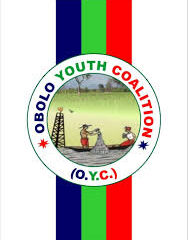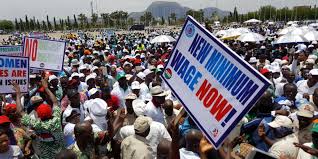Agriculture
Eid-el-Kabir: Price Of Rams Skyrocket In Lagos
Just few days to the Eid-el-Kabir festival, prices of rams and goats have continued to skyrocket in Lagos while prospective buyers are grumbling, a Tide source reports.
Some buyers, who spoke in separate interviews with our Correspondent in Lagos, lamented the high cost of rams slaughtered by Muslims as part of the ritual to mark the Eid-el-Kabir.
The Tide checks at the markets indicated that the prices of rams ranged from N30,000 to as high as N150,000 as against N20,000 and N80,000 during this period last year.
A School Principal Alhaji Idris Ibrahim, told newsmen that the situation had forced him to settle for only one ram as against three he usually slaughtered for the festival.
“I have no option than to settle for only one this time because of the high cost of rams.
“ This is against my usual practice of buying three rams for the festival,” he said.
A Civil Servant, Mr Abiodun Oladosu, said that the cost of ram had eaten up his salary for a whole month as his savings for the commodity could not meet up.
“I have to look for extra money to be able to buy my choice as the price of the ram is too high,” said the civil servant.
He said that what compounded the situation was the absence of any price control mechanism moderating the annual sale of the rams.
“There is virtually nothing we can do as government itself is powerless regarding the control of the sale of the commodity,” he said.
Mrs Afusat Alatishe decried the high cost of the rams but expressed optimism that the price would still come down as more rams arrived before the festival proper.
“The high cost of these rams has remained a source of concern to some of us bread winners who buy more than one for the family.
“I am optimistic that the price will still come down as more rams arrive before the Eid-el-Kabir,” she said.
Reacting to the complaints, Alhaji Haruna Usman, the Chairman, Ram Sellers Association, Iganmu, Lagos chapter, blamed the high cost of the rams on inadequate supply from the northern part of the country.
He said that the five trailers received by the association so far fell short of the 13 trailers which were received at this time last year.
Usman identified insecurity occasioned by the activities of the Boko Haram sect, especially in the northern part, as being responsible for the low supply.
Other factors, according to him, were high cost of transportation, high cost of animal feeds which rose from N200 to N1,200 per bag and taxes paid to the Lagos State Government for the use of public spaces to sell the rams.
He appealed to the buyers to exercise patience, saying that the price would come down as more rams were expected in the state before the festival.
Agriculture
FG, Ogun Distribute Inputs To 2,400 Farmers
Federal Government and the Ogun State Government, on Wednesday, distributed farm inputs to farmers as part of effort to address food security challenge.
The State Director, Federal Ministry of Agriculture and Food Security, Dr. Toyin Ayo-Ajayi, during the flag-off ceremony of Inputs Redemption Under The National Agricultural Growth Scheme-Agro Pocket (NAGS-AP), in Ogun State, disclosed that beneficiaries of the gesture were primarily rice, maize and cassava farmers across the State.
Ayo-Ajayi commended the Ogun State Government for partnering with the government at the centre for the effort in supporting farmers with inputs that would bring about yieldings for local consumption and likely exportation.
She noted that government is supporting rice, cassava and maize farmers with inputs worth N212,000; N189,000 and N186,000 respectively.
The Permanent Secretary in the State Ministry of Agriculture, Mrs Kehinde Jokotoye, who represented the Commissioner in the Ministry, Bolu Owotomo, stated that traditional farmers are critical in food production, hence the need to encourage and support them with inputs that would bring about desired results during harvesting.
Owotomo said: “Let us make good use of this opportunity, so that the success of this phase will make farmers benefit more from the state and federal governments of Nigeria.”
Earlier, State Coordinator, Federal Ministry of Agriculture and Food Security, Dr. Oluwatoyin Ayo-Ajayi, appreciated the present administration for partnering with the federal government for the initiative, adding that the programme is designed to support farmers at the grassroots level in cassava, rice and maize with inputs such as, seeds, pesticides, herbicides and fertilizers, to boost their production and enhance their livelihood.
Agriculture
Niger Allocates 10,000 Hectares For Smallholder Farmers
The Niger State Government has mapped out 10,000 hectares of farmland in Gbapo Community of Katcha Local Government Area of the State for smallholder farmers to benefit from the state government’s agricultural intervention programme.
Two thousand out of the 10,000 holders of the farmlands have already received inputs.
At a flag-off ceremony in Yinti Village, the facilitator of the programme, Shinkafan Nupe, Malam Idris Usman Makanta, assured the farmers of increased distributions to the mapped-out ten thousand (10,000) farmlands if farmers respond positively.
He explained that the commencement of the two thousand is to measure the positive response of farmers before obtaining full-scale support.
Malam Makanta stated that this initiative aligns with the farmers’ initial commitment through Niger Foods, whose mission is primarily geared towards establishing efficient and profitable agricultural businesses to support the present administration of Governor Mohammed Umaru Bago’s quest to boost agricultural productivity in the state.
He also commended Niger Foods for their steadfastness and resilience in the effective implementation of the input financing scheme.
Makanta reiterated the commitment of the State Governor in making judicious use of the arable land in the state.
Shinkafan Nupe, therefore, urged the farmers to support the Governor by using the inputs wisely so that the dream can be actualised.
Agriculture
GO-CARES: Gombe Empowers 573,429 Farmers, Entrepreneurs
The Gombe State Government has empowered a total of 573,429 farmers and entrepreneurs under the 4th phase of the GO-CARES programme.
The programme was officially flagged off by Governor Inuwa Yahaya in another major step towards alleviating poverty and supporting the state’s vulnerable populations.
The Governor, while inaugurating the disbursement in Akko Community of Akko Local Government Area, restated his administration’s commitment to the welfare of vulnerable citizens in the state.
He was represented by the Commissioner for Budget and Economic Planning, Salihu Baba Alkali, who is also the Chairman of the Steering Committee on GO- CARES implementation.
“The 4th phase of GO-CARES will directly and indirectly impact a total of 573,429 citizens across the state. Of these, 152,429 individuals will benefit directly through cash transfers, livelihood grants, agricultural inputs, and operational grants to small businesses”, he stated.
The Governor added that, “421,000 people will be indirect beneficiaries through infrastructural projects such as classroom blocks, healthcare facilities, WASH services, and rural infrastructure projects like culverts and drainages”.
Yahaya, reaffirmed his commitment to ensuring that the state’s most vulnerable citizens are not left behind in the state’s development.
According to him, “Earlier this year, on June 25, 2024, we flagged off the distribution of improved seedlings, fertilizers, and herbicides to less privileged farmers in Malam Sidi, Kwami Local Government Area, signaling the commencement of the 4th phase implementation of GO-CARES under Result Area 2”.
The Governor reiterated that these initiatives have had a significant impact on the livelihoods of beneficiaries and the overall agricultural sector.
He explained that, “Today’s ceremony marked the simultaneous launch of activities under all three GO-CARES Result Areas for the 4th phase. These areas include: State Cash Transfer Grants: 2,500 direct beneficiaries; Labour Intensive Public Works: 2,700 direct beneficiaries; Livelihood Grants: 10,000 direct beneficiaries; and Basic Services: 405,000 indirect beneficiaries”.
-
Opinion5 days ago
Transforming Nigeria’s Health Sector
-

 Politics2 days ago
Politics2 days agoProposed States Creation: Youth Leader Lauds Nass Over Obolo State Inclusion
-

 News2 days ago
News2 days agoTreasury Bills Attract N3.22trn From Investors
-

 Sports2 days ago
Sports2 days agoNPFL: Remo Narrowly Beat Pillars 2-1 To Maintain Lead
-

 News2 days ago
News2 days agoAfDB Dissatisfied With $210m Nigeria Agro-Industrial Zones Project
-

 Niger Delta2 days ago
Niger Delta2 days agoDiri Unhappy Over Poor State Of Public Schools
-

 Editorial2 days ago
Editorial2 days agoNew Federal Varsity In Ogoni
-

 News2 days ago
News2 days agoN70,000 Minimum Wage States’ Salaries Rise By 90% To N3.8trn

